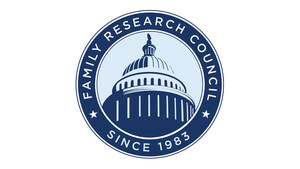WASHINGTON, Dec. 9, 2022 /PRNewswire/ -- Last week, the U.S. Department of State released its list of Countries of Particular Concern (CPC). This year's list included Burma, China, Cuba, Eritrea, Iran, North Korea, Nicaragua, Pakistan, Russia, Saudi Arabia, Tajikistan, and Turkmenistan. The list, again, notably left off Nigeria which over the past couple of years has seen unprecedented amount of persecution of its Christian population.
In response to the latest CPC list, Family Research Council today released a new report, titled "Countries of Particular Concern: Why This U.S. Foreign Policy Tool Is Often Ineffective and How to Make It Better." The report argues the U.S. Department of State "must do more to 'add teeth' to make the CPC designation more effective at compelling foreign governments to cease persecution." The CPC designation was established by the U.S. federal government through the International Religious Freedom Act of 1998, which mandated the promotion of religious freedom across the globe as an important part of American foreign policy. The release of this resource coincides the State Department's release of this year's CPC list.
The report lays out recommended policies to make the CPC designation more effective, including:
- The State Department should increase publicity of the annual CPC designations.
- The U.S. government should make a greater effort to negotiate an agreement with foreign governments before placing them on the CPC list.
- Congress should consider passing legislation that would assess countries' religious freedom conditions via a three-tier system.
- Human rights advocates and NGO's (Non-Governmental Organizations) must continue to press the State Department to address religious freedom concerns for CPC countries.
- The State Department should utilize waivers less and sanctions more.
- Implement more positive incentives for countries that do not yet meet SWL (Special Watch List) or CPC criteria and are open to improving religious freedom conditions.
Tony Perkins, FRC president and former chair of the U.S. Commission on International Religious Freedom, commented on the report:
"As we have seen since President Biden took office, religious freedom, whether at home or abroad, is not a priority for his administration. Instead, his administration would rather force radical ideologies on countries that have no interest in his administration's woke cultural imperialism. The Country of Particular Concern designation is an easy way for President Biden to hold foreign governments to a basic standard of religious freedom conditions. Failing to include countries with a horrendous record of persecution, such as Nigeria and India, are glaring omissions. To ignore the record of governments that openly tolerate -- if not endorse -- religious persecution makes it clear that religious freedom is not a priority for the Biden State Department."
Arielle Del Turco, FRC's Assistant Director of the Center for Religious Liberty and author of the report, also commented on the report:
"Given the scale of religious persecution, the issue deserves far more attention than it receives on the world stage. The problem of violence against religious believers is immense and growing. Sadly, the response by democratic governments has been lackluster. The Country of Particular Concern designation gives the U.S. government a unique opportunity to hold the line on religious freedom and put pressure on the world's worst violators of religious freedom. The fundamental right to hold and practice the faith of one's choosing is core to humanity, and U.S. leaders should not hesitate to defend it."
To access the full publication, please visit: frc.org/CPC
SOURCE Family Research Council

WANT YOUR COMPANY'S NEWS FEATURED ON PRNEWSWIRE.COM?
Newsrooms &
Influencers
Digital Media
Outlets
Journalists
Opted In





Share this article